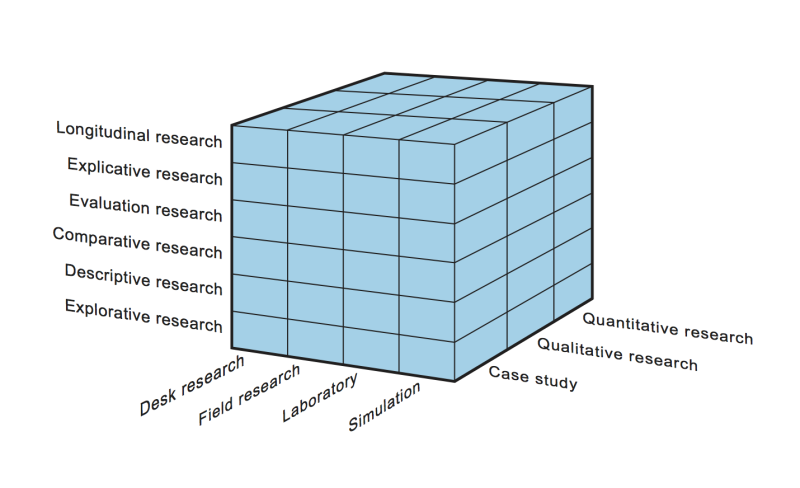
Laboratory research
Data can be gathered in the field by observing or using a questionnaire or interviews (real life), behind the desk (desk research), with a computer (simulation) or in a laboratory. What makes a laboratory research so special?
When thinking of a lab you might think on man and women in white jackets doing all kinds of chemistry tests. That is only one type of laboratory. See it from a broader perspective. People can go to a hospital for a MRI scan, ECG, EEG or any physical test. The measurements take place in steady conditions. Sometimes, even social studies make use of a laboratory for studying human behaviour.
The advantage of using a laboratory is the steady surroundings. Now the scientist can study his objects free from unclear interferences. For instance, if he wants to study how quickly persons help another person, a waiting room can be rented and after the testee (respondent) entered this room someone (an actor) with an urgent problem might come in. The reactions of the testee can be observed. Different types of problems can be distinguished or differences in characteristics of the actor (male or female, dressed up well or poor, visibility of religious signs, and so on). This example makes clear that a lab could be everywhere, even in ordinary situations.
By doing experiments in a laboratory the unknown interferences of aspects from outside are reduced. This can be a problem to. The testee doesn’t have to behave in the same way in real life. He might help the one in need in a waiting room, but in a busy street on his way to his office, any help may stay out. This problem with external validity is part of every study and not specific for laboratory experiments.
Related topics to laboratory research
Laboratory Research is one of the basic types of research
Every research can be classified on three dimensions:
1) the research design
2) the location of data collection and
3) the number of cases.
Together they form the research cube. With this classification 72 types of research can be distinguished.



